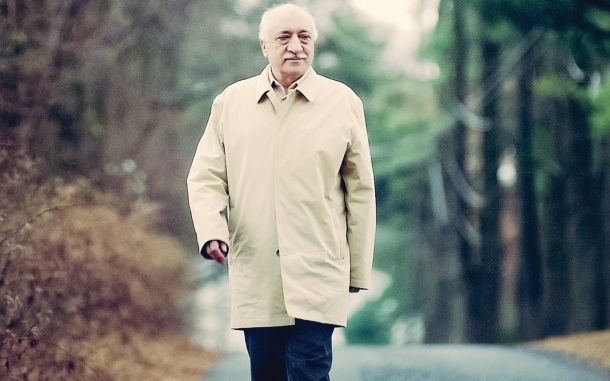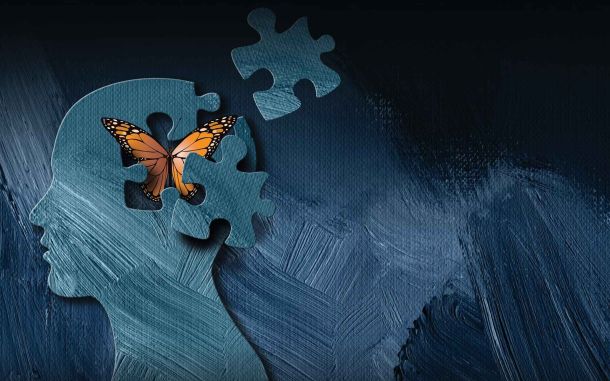Rising to True Humanity

In This Article
-
Our future can be secured by establishing a climate in which we can empower each other and make it a convenient setting for us to thrive.
Our primary concern, regardless of time or place, is to have people rise to the level of true humanity. Only those individuals who are moved by a sense of goodness and are in pursuit of perfection can be of help to humankind, which has been pursuing wrong paths and unable to come to its senses for the last several centuries; only these individuals can show people the ways of becoming “true” human beings. Wherever they go, they will advocate for human values and contribute to the gradual roll-out of the sense of goodness and kindness across society. The work and efforts of these eminent individuals who set their hearts on the well-being of humankind may pave the way for a collective awakening as everyone starts to speak the common language of being human and pursuing the same goal. If such an atmosphere can be established, even those who are unable to stand up on their own will be moved by a collective state of mind to join the same chorus, and they will be saved from being lost to oblivion.
Faith and enthusiasm may not be sufficient to keep people moving forward at all times. Their willpower may occasionally be overcome by carnal desires. The collective enthusiasm in a community where everyone is striving for goodness and kindness may help such individuals to stand upright and get protection against our carnal souls or temptations from Satan. This is similar to how pilgrims inject enthusiasm into one another and psychologically support each other during the hajj at sacred sites like Mataaf, Mina, Muzdalifah, and Arafat. Even if you have lost your fervor, the waves of excitement and enthusiasm in these holy sites will sweep you along, and you will find yourself in a unique spiritual atmosphere.
Yes, it is true that leading a straightforward life depends, to a certain extent, on being part of a righteous community. Therefore, we each should try to be on the path to become al-insan al-kamil (a perfected human being) in our own right while working hard to ensure that other people, too, should work toward that goal at the same time.
It is not always easy to resist the voids and weaknesses of our nature and build the monument of our spirits. Just as the rectitude of society is conditional on well-raised individuals, the righteousness of individuals depends on their living in an upright, righteous society. When they are alone, individuals can easily tumble down, unable to withstand terrible currents of deceit, misguidance, and sin. Yet, if there is a community around to extend a helping hand and support and empower them, it is easier for them to keep going and get protection and patronage.
The stones that make up a dome are able to resist the unrelenting forces of gravity by supporting each other, and this keeps the entire building upright and intact. In the same manner, when people support each other, this will sustain and support both themselves and the entire society. Our future can be secured by establishing a climate in which we can empower each other and make it a convenient setting for us in which to thrive. If this is achieved, when somebody runs out of breath in the hustle and bustle of life due to different reasons, they can refuel from the energy source of their friends. When climbing uphill, if they are exhausted at one point, the positive wind of their friends can push them upward.
Sometimes, we may assume that other people need to learn and benefit from our views, ideas, and values. That may be true. Yet, we, too, need a sound ground, a righteous environment, and a cultural setting where we can freely enjoy and cherish our own thoughts and ideas; this is not easy to realize. If we cannot do this at a broad scale—let’s say in a town or city—then we should at least try to make it happen at a smaller scale, even if it is as small as a village.
With his sagacity and foresight, the Messenger of God, peace and blessings be upon him, established such a social structure soon after he arrived in Medina. He managed to have a say in public affairs there even though there were many diverse communities, such as Jewish tribes and mushrikūn (idol worshippers), in addition to munafiqūn (hypocrites), all living in the same town. Some among these groups were working clandestinely to undermine the Muslim community and continuously plotting against them. They were doing everything to demoralize and harm the believers at every opportunity to finish off the light of Islam in Medina. Despite such challenges, Prophet Muhammad, the Pride of Humanity, established such a positive atmosphere in Medina that, with God’s help and grace, numerous problems were solved over time, the swamps were gradually drained, and hypocrites melted into that righteous milieu.
The very mentality of members of a community shapes the structure and even architecture of that community. For instance, Muslims tend to easily embrace a place where people are endowed with human and Islamic values. Every spot we visit in such a town will boost our enthusiasm. When I first went to Istanbul in the 1950s, I had a chance to visit some of the historical mosques, like Beyazıt, Fatih, Süleymaniye, and Yavuz Selim, as well as the tombs of the Ottoman sultans. As I visited these places, I so enjoyed myself that I felt as if I was in Medina. Surrounded by such signposts and reminders, I assume a person living in such a setting would be away from sin to the highest extent.
Indeed, the cities built at a time when Islam was being cherished to the fullest were making their inhabitants feel as if they were living in Medina. These were our cities with our architecture, places of worship, schools, centers of spiritual development, aesthetics, cleanliness, and beauty. Among their inhabitants were many people whose words were as precious as pearls when they spoke. There were among them individuals who would be filled with so much joy so as to spread wings up into the heavens when they heard somebody call upon “God.” When the inhabitants of these cities were virtuous, the cities would become “virtuous,” too (al-madinah al-fadilah).
The world has come to experience “problems” with human beings. Humans were created with a potential open to all sorts of good and evil due to two major powers entrusted to them: reason and willpower. Certain aspects of human nature and its biological structure are susceptible to evil. We are innately predisposed to certain voids and weaknesses, such as greed, lust, spite, and hostility. No social problem can be solved unless we start solving problems in the individual. If individuals are not elevated to true humanity, the society they will form will be one with flawed, faulty people. What follows is that the general mood of that society will return to be adopted by human beings who are born in that environment. And, of course, in such an environment or society, it would be very difficult for perfected human beings to grow up and survive.
Those who manage to become true human beings will be respectful toward others. They will not interfere with the beliefs, sacred values, or lives of other people. They will refrain from insult or denigration. Thus, tolerance and forgiveness will govern relationships among individuals. Indeed, for many centuries minorities lived among Muslim communities and were able to practice their religions freely.
If people living in the same place are able to agree on certain values, then they will be able to coexist peacefully. In such an environment, everyone will be able to practice their beliefs freely without any obstacle, fear, or concern. No one will interfere and meddle with, or try to oppress, others. In such circumstances, you can make use of the advantages of globalization and existing technological opportunities to bring your values to the agenda of humankind and make quite a headway in this direction.
In doing so, you should properly showcase and promote your precious values, refrain from acts and behaviors that would devalue those values, make sure you treat everyone with tolerance and forgiveness and accept them as they are, stay away from provoking hatred or hostility, and embrace others with compassion and affection. If you can do so, people will embrace you affectionately, and you will have a chance to present your values to the entire humanity and share them with all human beings.
In summary, one of the fundamental duties of the devotees of God is to remind people once again of their humanity and the common values of humanity. They are supposed to show others that belief in God and the Hereafter is a great truth and value that cannot be denied and a great human need as well, thereby ensuring that they are revived in their heart and spirit. If this can be achieved, you will live in a tremendous cascade of enthusiasm and joy wherever you live, and you will see colors, patterns and images from your own world wherever you look.
Yet, our lives are short, and the road we have to take is long: it is better for us to hurry up. If you expedite matters and raise the bar of service to humanity to the highest point, then what you offer to humanity will be greater by God’s leave and grace. We are not running after a utopia. We are aware of realities concerning human beings. We can more or less calculate what should be done to what extent and how. We are also aware of the magnitude of the duty entrusted to us. If we can fulfill our duty properly, and if the Lord Almighty clears the way for us with His permission and providence, then it is not a dream to form many “virtuous” cities or communities.









